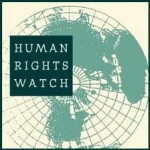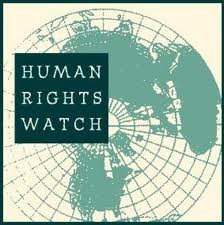
Security deteriorated dramatically throughout the country as the result of suicide bombings by the Taliban and affiliated groups, which targeted civilians and public spaces, including marketplaces and religious processions. There was a dramatic increase in targeted killings in the southwestern province of Balochistan, while 800 people were killed in often politically motivated violence in Karachi. Law enforcement authorities made little attempt to resolve enforced disappearances of terrorism suspects and opponents of the military.
“The past year was disastrous for human rights in Pakistan,” said Brad Adams, Asia director at Human Rights Watch. “Bombs killed hundreds of civilians, advocates of religious tolerance were assassinated, and the military undermined democratic institutions. From Karachi to Quetta, Pakistan is teetering on the edge of becoming a military-run Potemkin democracy.”
In its 676-page report, Human Rights Watch assessed progress on human rights during the past year in more than 90 countries, including popular uprisings in the Arab world that few would have imagined. Given the violent forces resisting the “Arab Spring,” the international community has an important role to play in assisting the formation of rights-respecting democracies in the region, Human Rights Watch said in the report.
In Pakistan, persecution and discrimination under cover of law against religious minorities and other vulnerable groups reached a zenith in 2011, Human Rights Watch said. Freedom of belief and expression came under severe threat as Islamist militant groups murdered Punjab’s governor, Salmaan Taseer, and the federal minorities’ minister, Shahbaz Bhatti, over their public support for amending the country’s often abused blasphemy law. The government notably failed to provide protection to people threatened by extremists or hold the extremists accountable. Taseer’s self-confessed killer, Mumtaz Qadri, was convicted of murder, but the presiding judge had to flee the country amid fears for his safety.
Extremist groups exploited the government’s passivity by intimidating minorities and with an upsurge in blasphemy allegations and cases, Human Rights Watch said. Religious minorities, Muslims, children, and mentally disabled people have all been charged under the blasphemy law, which violates the right to freedom of conscience and religion under international law.
“Government appeasement of extremist groups who fomented Taseer and Bhatti’s murders has led to a rash of blasphemy allegations and well-justified fear for those who question the use of the blasphemy law,” Adams said. “The Pakistan government needs to summon the courage to stand up to extremists and hold those responsible for violence and threats to account.”
Journalists, particularly those covering counterterrorism issues or who are perceived to be taking public positions against the military, faced unprecedented threats. At least ten journalists were killed in Pakistan during the year. A climate of fear pervaded efforts by the media to cover the military, and militant groups with the result that journalists rarely report on human rights abuses by the military in counterterrorism operations. The Taliban and other armed groups regularly threatened media outlets over their coverage.
Saleeem Shahzad, a reporter for the Hong Kong-based Asia Times Online and for Adnkronos International, the Italian news agency, disappeared from central Islamabad on the evening of May 29. He had received repeated and direct threats from the military’s abusive Inter Services Intelligence (ISI) agency. Shahzad’s body, bearing visible signs of torture, was discovered two days later near Mandi Bahauddin, 130 kilometers southeast of the capital.
Following an international and domestic furor caused by the killing, a judicial commission was formed within days to investigate allegations of ISI complicity. In August, Human Rights Watch testified before the commission. The commission released its findings in January 2012, but failed to identify the perpetrators or exhaustively investigate the role of the ISI, which remains the principal suspect.
Despite widespread allegations of ISI and military involvement in coercion, abduction, torture, and killings of perceived opponents, including journalists, no military personnel have ever been held accountable for such abuses.
“Unless Shahzad’s murderers are identified and held accountable, media freedoms will decline even further in Pakistan as journalists operate in fear for their lives,” Adams said. “The government needs to bring charges wherever the trail leads, including to the ISI.”
The southern port city of Karachi experienced an exceptionally high level of violence during the year, with 800 people killed, Human Rights Watch said. The killings were carried out by armed groups backed by all the political parties with a presence in the city. The Muttaheda Qaumi Movement (MQM), Karachi’s largest political party, with heavily armed cadres and a well-documented history of human rights abuse and political violence, was widely viewed as the major perpetrator of targeted killings. The Awami National Party and ruling Pakistan People’s Party-backed Aman (Peace) Committee killed MQM activists.
Relations between Pakistan and the United States, long Pakistan’s most significant ally and its largest donor of humanitarian and military assistance, deteriorated markedly in 2011. Factors fueling the diplomatic crisis included the killing of two men by a CIA contractor at a Lahore traffic junction; the withholding of US$800 million in military aid to Pakistan; Pakistan’s alleged support for militants from the “Haqqani network,” a group that US officials accused of targeting the US Embassy and NATO troops in Afghanistan; the alleged harboring by Pakistan of Osama bin Laden and his killing by the US; and the November 26 killing during military operations of 24 Pakistani troops on the Afghan border by NATO forces.
The United States carried out about 75 aerial drone strikes during 2011 on suspected al Qaeda and Taliban members near Pakistan’s border with Afghanistan. These strikes resulted in claims of large numbers of civilian casualties, but lack of access to the conflict areas has prevented independent verification.
“Little is known about who is killed in CIA drone strikes in Pakistan and under what circumstances,” Adams said. “So long as the US resists public accountability for CIA drone strikes, the agency should not be conducting targeted killings.”
In November, Husain Haqqani, Pakistan’s ambassador to the US, was forced by the Pakistani military to resign his position after allegations that he was responsible for a secret memo delivered to senior US military officials seeking support for Pakistani civilian control of national security policy. Haqqani is now blocked from leaving Pakistan and has publicly expressed fear for his life. His lawyer, the prominent human rights defender and former UN human rights envoy Asma Jahangir, has expressed similar concerns and raised serious reservations about a lack of due process in the legal proceedings against Haqqani.
“The military has gained increasing control of state institutions to the detriment of the rights of the Pakistani people,” Adams said. “Civilian officials are now afraid to oppose the military on any key issues, making it increasingly difficult for the government tackle past and present rights violations by the military.”

